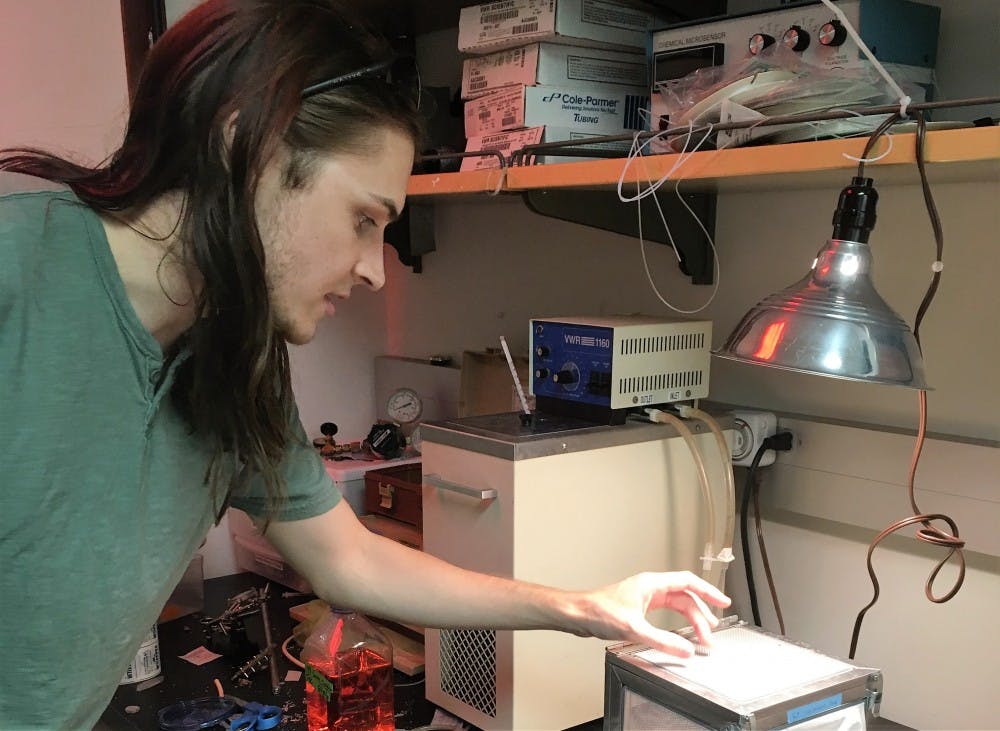Researchers attempting to combat the Zika virus now have access to the efforts of ASU scientists spurred on by threats of the virus in their home state.
While media hype about Zika may have died down, the virus is still alive and well in Florida and continues to spread throughout the U.S. The CDC predicts that the virus could spread throughout the South and Southwest within the next few years.
ASU has a lab set up to study the Aedes Aegypti mosquito, the primary vector of the pathogen that causes Zika. This species, which thrives in hot, damp environments, has a population in Arizona including within the Valley. However, what makes this species especially worrying for virologists is that it has a taste for human blood.
“They are specifically adapted to human blood meals,” Trevor Fox, a biology graduate student currently studying the Aedes Aegypti, said. “An urban environment like this with a lot of people means a lot of food for these mosquitos.”
Fox works in the mosquito lab researching how the Aedes Aegypti mosquito survives in the extremely hot and dry Phoenix environment. By all means, the insect, which was reported here for only around a century, should not be able to survive in the Valley
Fox predicts that the human presence here enables the species' existence in such an arid environment.
“They are using the urban area to create an almost tropical environment," Fox said. "They find small pockets of moisture and shade in the sewer system."
In the sewers, Aedes Aegypti are able to maintain their population and continue to threaten Phoenix residents — however, the biggest threat they pose is being a minor annoyance, as they don't yet carry the Zika virus, Fox said.
Fox said the researchers are working hard to make sure it stays this way by identifying potential hosts of the virus.
For example, a group of ASU molecular biologists have quickly and effectively created a testing device that can be used in order detect a carrier of Zika.
“We wanted to develop a test that was low-cost and required very few technical resources,” Alexander Green, one of the researchers, said.
The device itself only costs $1, allowing it to be easily manufactured and distributed in susceptible areas with insufficient infrastructure. If the researchers are able to catch the eye of a large manufacturer, these devices could help to stop the spread of the disease by identifying carriers.
“With a drop of blood the test reacts to the specific Zika RNA barcode and the color changes from yellow to purple,” Green said. “This solution could also be translated to identify other RNA based viruses such as Ebola.”
However, the only way to truly stop the spread of a disease like Zika is collective immunity through the development of a vaccine. But, the creation and implementation of such a solution can be an incredibly lengthy and expensive procedure.
Clinical trials can cost tens of millions of dollars and are covered in miles of red tape.
“I develop vaccines for a living and the amount of time that it takes to develop one is much too long to see that as the only option,” Bertram Jacobs, PhD, virologist and director of the Life Sciences department at ASU, said.
When fighting Zika, it is important to weigh all the options and make sure that preventative measures are emphasized rather than just a catch-all vaccine.
“If we can attack this disease from as many angles as possible,” Jacobs said. “Then we have the highest chance of success (in stopping the virus from entering Arizona.)"
Reach the reporter at cdemert@asu.edu or follow him on Twitter @dolewayne
Like The State Press on Facebook and follow @statepress on Twitter.




